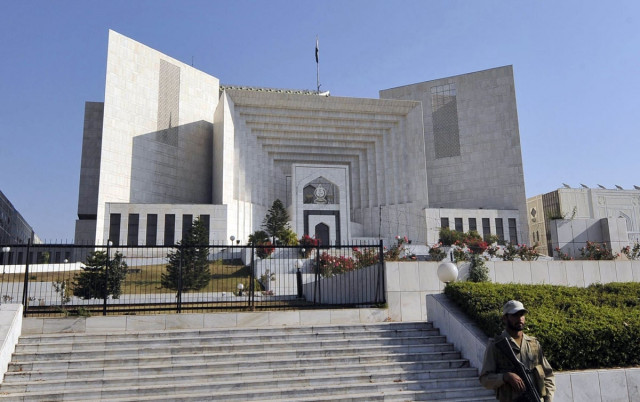Guarding against misuse: Larger SC bench to review Qisas, Diyat cases
Diyat is used to discourage lawlessness, not for the rich to escape justice: CJ.

The state can interfere in such cases even if the heirs of the deceased forgive the convicts. PHOTO: AFP
The Supreme Court on Thursday decided to constitute a five-member bench to begin hearing issues pertaining to Diyat (blood money) and to assess how the allowance under Islamic law is being used to pardon murderers in the name of God.
Chief Justice Iftikhar Mohammad Chaudhry announced the establishment of the bench during Thursday’s appeal hearing of a case in which murder convicts had been pardoned by the family in the name of God or ‘Fisabillillah’.
The apex court had taken up appeals of Mohammad Azam and Sikander Hayat who were convicted for the 2004 murder of Mohammad Arif in Mandi Bahauddin district. The family of the victim had pardoned the murderers.
The three-member bench observed that the state can interfere in such cases even if the heirs of the deceased forgive the convicts in return for blood money.

A lower court had sentenced Azam to death two years ago. Another convicted murderer was sentenced to life imprisonment a year later. But the Lahore High Court had converted Azam’s death sentence into life imprisonment.
The two convicts approached the Supreme Court last month and appealed that they had been pardoned in the name of Allah. Under the compromise, the two widows of the deceased waived Diyat for two and half kanals of land instead.
The chief justice observed that though the Islamic provision allows pardon, it can only be applicable after thorough consideration of legal aspects, as the allowance of Diyat is often misused. The law should not be exploited by the wealthy to get away with murder, the chief justice maintained.
The apex court earlier had asked the attorney general and advocates general of all the provinces to submit their inputs on how to discourage the growing trend. Advocate General of Punjab Mustafa Ramday submitted his input, whereas the advocates general of Sindh, Balochistan and Khyber-Pakhtunkhwa (K-P) have not as yet.
The chief justice said that there was no harm in invoking these laws for legitimate purposes, but accepting huge sums of money and other valuables should be discouraged under this provision.
Justice Jawwad S Khawaja said family members of the deceased can pardon the victims in their own capacity and the state could still punish them under the Pakistan Penal Code.
Published in The Express Tribune, October 4th, 2013.


















COMMENTS
Comments are moderated and generally will be posted if they are on-topic and not abusive.
For more information, please see our Comments FAQ